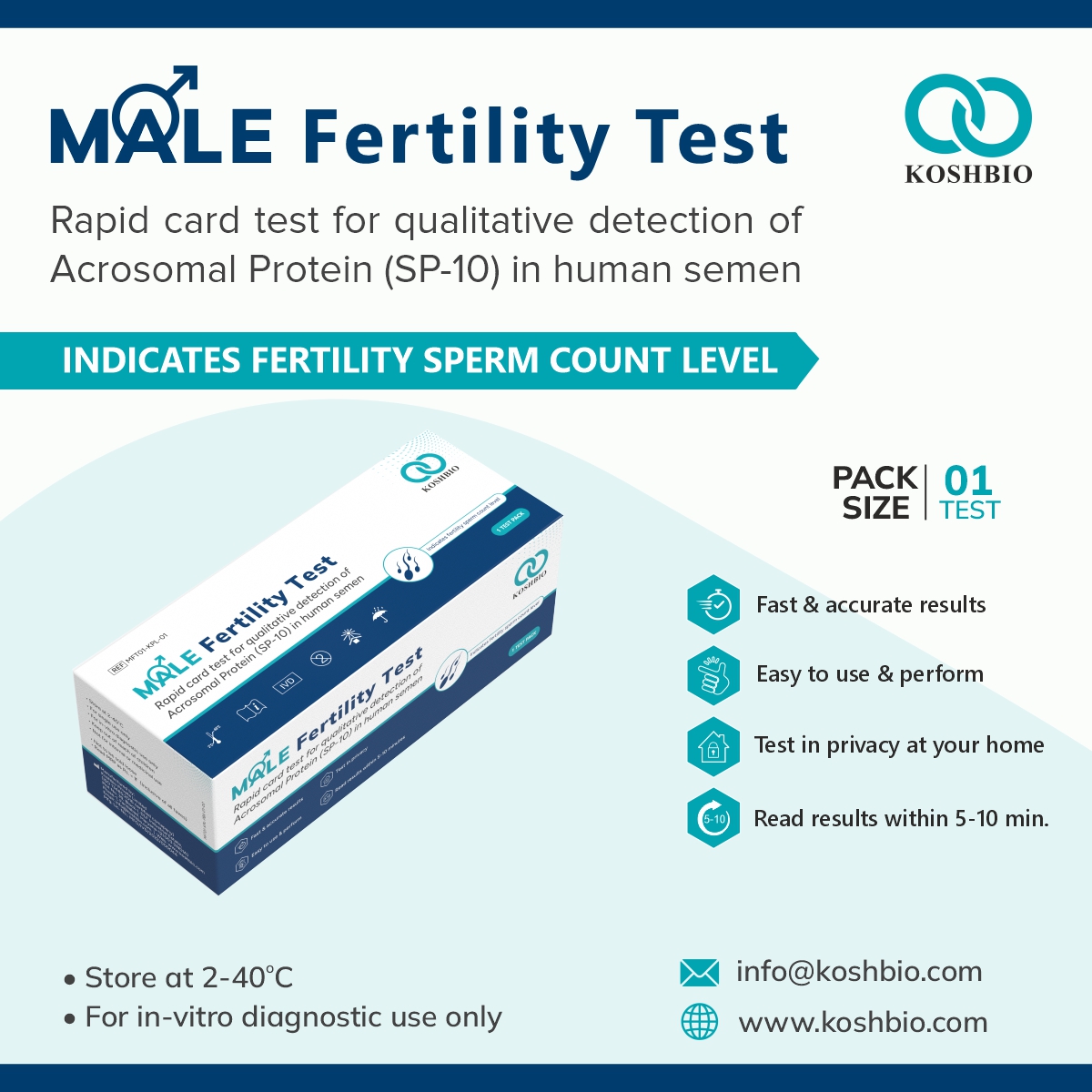Male Fertility
- Male Fertility

Male Fertility Test
The Male Fertility test is a card test for qualitative detection of Acrosomal Protein (SP-10) in human semen. For in-vitro diagnostic use only. Sperm concentration is one of the primary factors used by physicians to diagnose male infertility. There are many reasons why a man may be infertile and, therefore, unable to fertilize the female ovum during reproduction. One primary and most common reason is the abnormally low production of viable sperm cells. Other reasons can be over production of inactive, weak, or deformed sperm cells, high levels of other cells in the semen that interfere with fertilization, or other physiological factors. Medical or physical conditions may also interfere with normal sperm cell production, including high stress, recent high fever or illness experienced within two months prior to testing, and abrupt changes in diet. Taking this initial screening test will indicate if a low amount of sperm production exists. Up to 15% of couples experience infertility, which is defined as the failure to become pregnant after one year of unprotected, well-timed intercourse. And, in 40% of couples struggling with infertility issues, male infertility is the primary cause. Because low sperm count is a leading cause of male infertility, an important first step in determining the cause of infertility is to test the sperm count. The Male Fertility Test detects Acrosomal Protein SP-10 found on sperms. Since, SP-10 is a protein specific to male germ cells and cannot be found in other cells. This test is very specific for sperms and is now being used for estimating sperm concentration in semen as an aid in determining causes of infertility.

